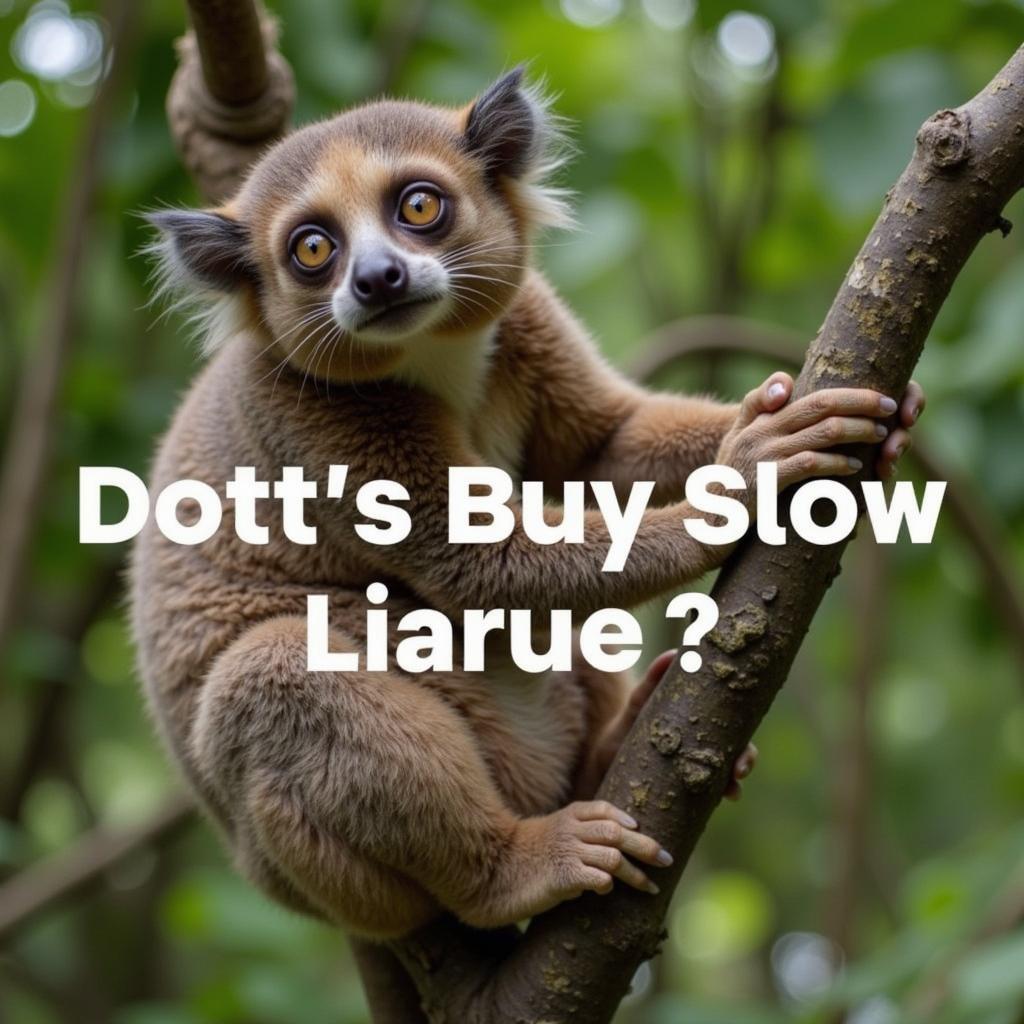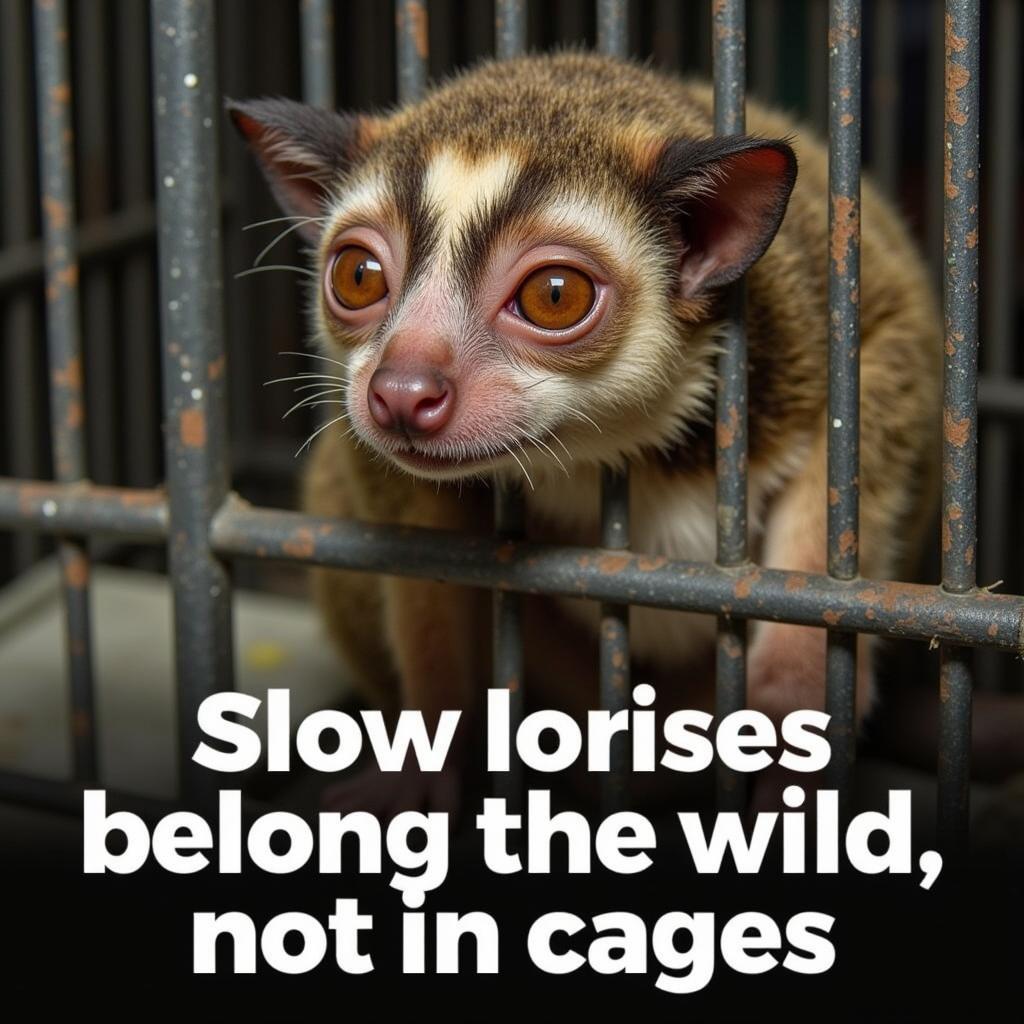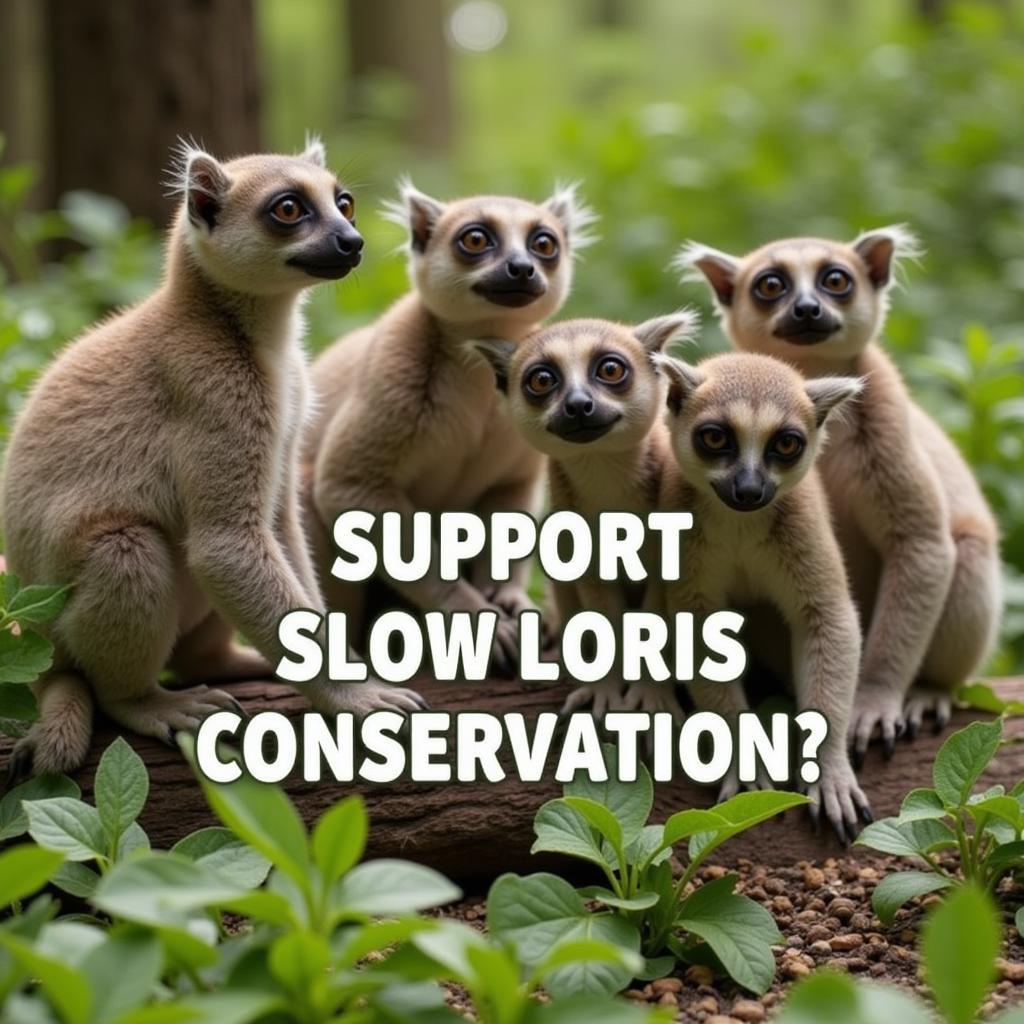Slow lorises, with their large, endearing eyes and gentle demeanor, have captivated the hearts of many. This has unfortunately led to a demand for slow lorises for sale, fueling the illegal pet trade and posing a severe threat to their survival. This article will delve into the ethical and legal ramifications of buying a slow loris, highlighting the devastating impact on these vulnerable primates and the importance of responsible wildlife conservation.
The Illegality and Dangers of Buying a Slow Loris
The trade of slow lorises is strictly prohibited under CITES (the Convention on International Trade in Endangered Species of Wild Fauna and Flora), making it illegal to buy or sell them in most countries. Despite this, the Slow Loris For Sale market persists, driven by the exotic pet trade. Purchasing a slow loris not only contributes to the decline of their wild populations but also poses risks to human health and well-being. These animals require specialized care that is difficult to replicate in a domestic setting, often leading to malnutrition, stress, and various health problems.
Furthermore, slow lorises possess a venomous bite, a rare trait among primates. While their venom is not typically fatal to humans, it can cause severe allergic reactions and infections. Dealers often cruelly remove their teeth to make them appear safer, a painful and debilitating procedure that often leads to infection and death. This barbaric practice underscores the inhumane treatment slow lorises endure in the illegal pet trade.
 Buying and selling slow lorises is illegal
Buying and selling slow lorises is illegal
Why Slow Lorises Don’t Make Good Pets
While their appealing appearance may tempt some to consider a slow loris for sale, these primates are ill-suited for life as pets. Their complex dietary needs, nocturnal nature, and specific environmental requirements are nearly impossible to meet in a typical household. They require a spacious enclosure with a controlled temperature and humidity, a specialized diet of insects, fruits, and tree gum, and ample opportunities for climbing and social interaction.
Slow lorises are also highly social animals that thrive in complex social structures. Keeping them isolated in captivity deprives them of their natural social interactions, leading to psychological distress and behavioral problems. Their nocturnal lifestyle also makes them unsuitable companions for humans who are active during the day.
 Slow lorises are not suitable pets
Slow lorises are not suitable pets
Protecting Slow Lorises: Conservation Efforts and Alternatives
Numerous organizations are working tirelessly to combat the illegal trade in slow lorises and protect their dwindling populations. These efforts include raising public awareness, supporting rescue and rehabilitation centers, and working with local communities to develop sustainable alternatives to wildlife exploitation. Instead of seeking a slow loris for sale, individuals can support these conservation initiatives through donations or volunteer work.
For those who admire these fascinating creatures, there are ethical ways to appreciate them without contributing to their exploitation. Supporting reputable zoos and sanctuaries that prioritize animal welfare and conservation provides opportunities to observe these animals in environments that cater to their needs. Educational programs and documentaries also offer valuable insights into their unique biology and behavior.
 Protecting slow lorises in the wild
Protecting slow lorises in the wild
Conclusion
The allure of a slow loris for sale can be tempting, but the ethical and legal implications are significant. Buying a slow loris fuels the illegal pet trade, contributing to their decline in the wild and subjecting them to inhumane treatment. By understanding the risks and supporting conservation efforts, we can ensure the survival of these remarkable primates for generations to come. Let’s choose responsible wildlife appreciation over the cruel exploitation of the illegal pet trade.
FAQ
- What should I do if I see a slow loris for sale?
- Are there any legal ways to own a slow loris?
- How can I support slow loris conservation?
- What are the dangers of owning a slow loris?
- Why are slow lorises endangered?
- What is the natural habitat of a slow loris?
- What do slow lorises eat?
Gợi ý các câu hỏi khác, bài viết khác có trong web.
- Vòng đời của cù lần chậm là gì?
- Cù lần chậm sống ở đâu?
- Làm thế nào để nhận biết cù lần chậm?
Khi cần hỗ trợ hãy liên hệ Số Điện Thoại: 0909802228, Email: doibongda@gmail.com Hoặc đến địa chỉ: 101 Đ. Lý Chiêu Hoàng, Phường 10, Quận 6, Hồ Chí Minh, Việt Nam. Chúng tôi có đội ngũ chăm sóc khách hàng 24/7.